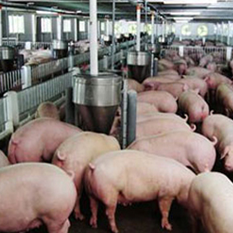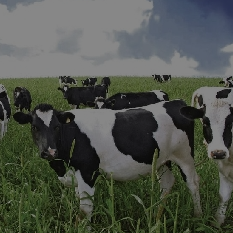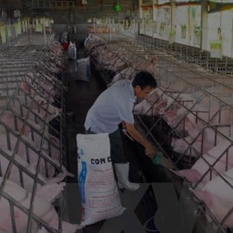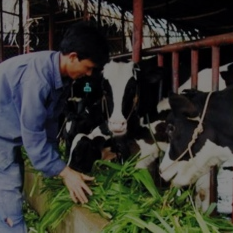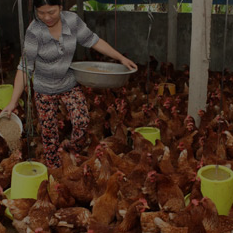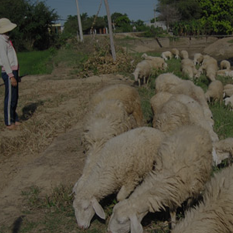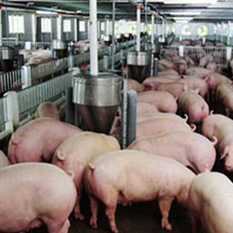Association of cGH, IGF-I and Pit1 gene polymorphisms with growth performance and carcass traits in Thai broilers
Abstract
Molecular market selection has been an acceptable tool in the acceleration of the genetic response of desired to improve production performance in chickens. The crossbreds from commercial to improve production performance in chickens. The crossbreds from commercial PS broilerwith four Thai syntheticbreeds; KaenThong (KT), Kai Mook Esarn (KM), Soi Nin (SN), and Soi Pet (SP) were used to study the association among chicken growth hormones (cGH), the insulin-like growth factor (IGF-I), and the pituitary-specific transcription factor 1 (PIT1) genes for growth and carcass traits; for the purpose of developing a suitable terminal breeding program for Thai broilers. Atotal of 408 chickens of four Thai broilers lines were genotyped, using PCR-RFLP methods. The cGH, IGF-I, and PIT1 gene showed genetic variation in all of four Thai broiler lines. However, the AA genetype of cGH gene had low genotype frequency (0.01) and TT genotype of PIT1 gene was not found in PS x SP population. The cGH gene was significantly associated with body weight (BW) at hatching ; at 4,6,8, 10 weeks of age in PS x KM chickens. For PS x KT populations, cGH gene showed significant association with BW at Hatching, and ADG; during 8-10 weeks of age. The SNP variant confirmed that AG and GG genotypes of cGH gene have positive effects for BW and ADG. Within carcass traits, cGH revealed a tentative association within the dressing percentage. For the IGF-I gene polymorphism, there were significant associations with BW at hatching; at 2,4,and 6 weeks of age, and ADG; during 8-10 weeks of age. The SNP variant confirmed that AG and GG genotypes of cGH gene have positive effects for BW and ADG. Witin carcass traits, cGH revealed a tentative asspciation within the dressing percentage. For the IGF-I gene within the percentages of breast muscles and wings. For PIT1 gene polymorphism, the results revealed positive relationships with BW at 8 and 10 weeks of age; and with ADG during 2-4, 4-6, 6-8, 8-10, 0-8, and 0-10 weeks of age in PS x KM and PS x KT populations. The PIT1 was significantly associated with only ADG during 4-6 weeks of age in PS x SP population, and none significant association was found in PS x SN chicken population. The SNP variant confirmed that TT genotype of PIT1 gene was detected within breast muscle percentage. Some significant effects of cGH, IGF-I, and PIT1 combined genotypes were found on growth performance and carcass traits of Thai broilers. Chickens within AA/TT combined genotype at the two loci of IGF and PIT1 genes had a significantly higher BW at 8 weeks and ADG at 0-10 weeks of age in PS x KM population; and AC/TT combined genotype had higher BW with almost observed traits in PS x KT chickens. The combination of cGH and PIT1 showed that GG/TT combined genotype had higher BW and ADG in almost observed periods in PS x KM and PS x KT populations. For cGH and IGF-I combination, individuals within GG/AA also demonstrated highed BW and ADG with almost observed growth periods in PS x KM hybrid chickens. For carcass traits, only tentative associations were found of the IGF-I and PIT1 genotype combination with dressing percentage and breast muscle percentage. Similarly for cGH and PIT1 combination, ther were tentative associations with dressing percentage, breast muscle and thigh percentage. For cGH and PIT1 combination, there were tentative associations with dressing percentage, breast muscle and thigh muscle percentage. Similarly for cGH and PIT1 combination, there were tentative associations with dressing percentage, breast muscle and thigh percentage. However, further study will be required to achieve more accurate result. Thus, CGH and PIT1 genes may be used as a candidate gene, to improve growth traits of Thai broilers.



